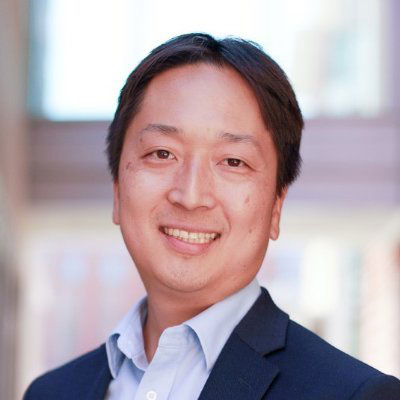
924 Westwood Blvd, Suite 420, Room B
William Hsu, PhD
Professor, Department of Radiological Sciences
Professor, Department of Bioengineering
Member, Institute for Quantitative and Computational Biosciences
Member, Jonsson Comprehensive Cancer Center
BIOGRAPHY
I am a Professor-in-Residence in the Department of Radiological Sciences, Bioinformatics, and Bioengineering and a member of the Medical & Imaging Informatics group. I am also affiliated with the Institute of Quantitative and Computational Biosciences (QCB), UCLA Medical Informatics Home Area, and Jonsson Comprehensive Cancer Center. I am a deputy editor for Radiology: Artificial Intelligence.
In the current data-rich healthcare environment, our capacity to collect vast amounts of longitudinal observational data must be matched with a comparable ability to learn from the data and enable individually tailored medicine. My research focuses on systematically integrating information across different data sources to improve the performance and robustness of clinical prediction models. I direct the Integrated Diagnostics Shared Resource, an interdepartmental resource that prospectively collects clinical, imaging, and molecular data to improve the detection and characterization of early-stage cancer. I also lead a team of postdoctoral fellows and graduate students who are developing computational tools that harness clinical, imaging, and molecular data to aid physicians in formulating timely, accurate, and personalized management strategies for individual patients. We adapt and validate novel artificial intelligence/machine learning algorithms, translating them into applications that enable precision medicine. My team works on problems related to data wrangling, knowledge representation, machine learning, and interpretation. We utilize a wide spectrum of approaches, from statistical approaches to machine and reinforcement learning, depending on the problem. I work closely with a team of software developers and analysts who harden and translate research products into real-world applications that improve the practice of radiology.
RESEARCH INTERESTS
- Develop machine learning approaches for discovering optimal care pathways for individuals
- Build software tools and algorithms to enable integrated diagnostics research
- Use deep neural networks to integrate multimodal data for integrated diagnostics
- Improve methods for evaluating and adopting prediction models
- Formalize the process of using published literature for treatment selection and experiment planning
